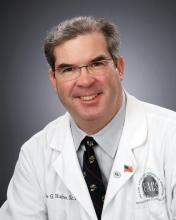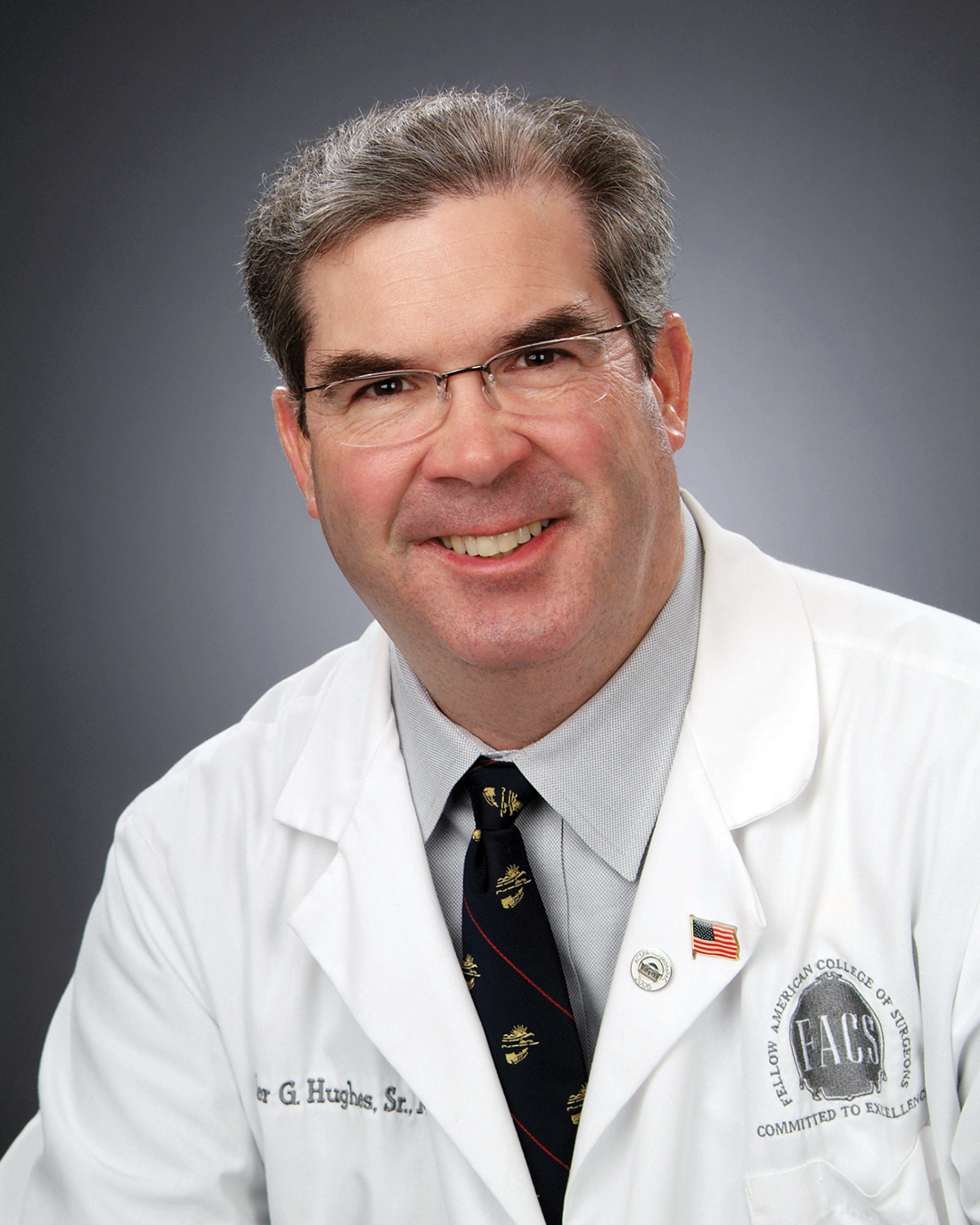User login
Most mature surgeons and surgical educators have been asked by hopeful young medical students: “What can I do to improve my chances of becoming a surgeon?” We all want to give our aspiring students encouraging yet truthful answers. The following are typical questions we get from students, and we have tried to provide responses that are both helpful and realistic given the individual circumstances. Do young hopefuls query you about what it takes to become a surgeon? If so, we invite you to let us know what kinds of questions you get and how you respond. We all want “the best and the brightest” to join our profession, and we can help make that happen by offering sound advice to those who come to us asking “How can I become a surgeon?”
Dear Dr. Hughes,
I am a first-year medical student and want to become a surgeon! Everyone tells me I have to have at least two publications to even be considered for an interview. Is this true? What is the best area of research for me to pursue to assure a match in a surgery residency?
Unpublished in the Midwest
Dear Unpublished,
Like almost everything in life, the answer to your question is “It depends.” Surgery is a field that covers such a wide range of opportunities and training options that there is no “perfect” path to residency. More than anything at the M1 level, you need to keep your options open for any discipline. During the next 3 years, you’ll find out much about yourself and about the breadth of medicine. You need to understand who you are as a person before deciding on a specialty and especially before embarking on a research project. Research is a crucial part of surgery, but research just to have a publication for your resume is not a good enough reason to take this on during medical school.
The pursuit of knowledge through research is best undertaken because you have a passion for a particular subject. Most program directors will see right through “insincere” research – that is, research done to puff up a resume but lacking underlying value or relevance to your personal interests.
Tyler Hughes, MD, FACS
Dear Dr. Deveney,
I am in the middle of my third year of medical school. I have wanted to be a rural general surgeon ever since I shadowed the surgeon in my home town and saw the impact he made on the lives of his patients – and they made on his. Unfortunately, I do not do well on standardized tests and scored only 216 on USMLE Step 1. I did earn “Honors” in my surgery clerkship, but only a “Pass” in Medicine, with other clerkships still pending. What can I do to maximize my chances of a successful match in a surgical residency?
Discouraged in Denver
Dear Discouraged,
Since medical students are applying to a larger number of programs every year, surgical training programs receive far more applicants than they can interview. Most programs use USMLE Step 1 score as a convenient way to filter applicants and interview only students who have scored above an arbitrary threshold, such as 220, 230, or 240. We all know that USMLE Step 1 score does not correlate well with how good a surgeon you will be, but it does correlate with the likelihood of passing the American Board of Surgery Qualifying Exam on the first attempt. Programs are in part judged on their Board passage rate by both applicants and by accrediting agencies. Your score of 216 means that you will need to apply widely to programs across the country.
I urge you to join the American College of Surgeons as a student member and attend the 2018 Clinical Congress meeting. Attend its medical student program, and meet as many program directors as you can at the “Meet and Greet” receptions.
Programs in which you will thrive are ones that value a person who pitches in and helps the team get the daily work done. Surgery is a team sport! You need to be unfailingly pleasant and positive and be able to tie a knot and suture an incision smoothly. Chance favors the prepared mind and hands! Good luck!
Karen E. Deveney, MD, FACS
Most mature surgeons and surgical educators have been asked by hopeful young medical students: “What can I do to improve my chances of becoming a surgeon?” We all want to give our aspiring students encouraging yet truthful answers. The following are typical questions we get from students, and we have tried to provide responses that are both helpful and realistic given the individual circumstances. Do young hopefuls query you about what it takes to become a surgeon? If so, we invite you to let us know what kinds of questions you get and how you respond. We all want “the best and the brightest” to join our profession, and we can help make that happen by offering sound advice to those who come to us asking “How can I become a surgeon?”
Dear Dr. Hughes,
I am a first-year medical student and want to become a surgeon! Everyone tells me I have to have at least two publications to even be considered for an interview. Is this true? What is the best area of research for me to pursue to assure a match in a surgery residency?
Unpublished in the Midwest
Dear Unpublished,
Like almost everything in life, the answer to your question is “It depends.” Surgery is a field that covers such a wide range of opportunities and training options that there is no “perfect” path to residency. More than anything at the M1 level, you need to keep your options open for any discipline. During the next 3 years, you’ll find out much about yourself and about the breadth of medicine. You need to understand who you are as a person before deciding on a specialty and especially before embarking on a research project. Research is a crucial part of surgery, but research just to have a publication for your resume is not a good enough reason to take this on during medical school.
The pursuit of knowledge through research is best undertaken because you have a passion for a particular subject. Most program directors will see right through “insincere” research – that is, research done to puff up a resume but lacking underlying value or relevance to your personal interests.
Tyler Hughes, MD, FACS
Dear Dr. Deveney,
I am in the middle of my third year of medical school. I have wanted to be a rural general surgeon ever since I shadowed the surgeon in my home town and saw the impact he made on the lives of his patients – and they made on his. Unfortunately, I do not do well on standardized tests and scored only 216 on USMLE Step 1. I did earn “Honors” in my surgery clerkship, but only a “Pass” in Medicine, with other clerkships still pending. What can I do to maximize my chances of a successful match in a surgical residency?
Discouraged in Denver
Dear Discouraged,
Since medical students are applying to a larger number of programs every year, surgical training programs receive far more applicants than they can interview. Most programs use USMLE Step 1 score as a convenient way to filter applicants and interview only students who have scored above an arbitrary threshold, such as 220, 230, or 240. We all know that USMLE Step 1 score does not correlate well with how good a surgeon you will be, but it does correlate with the likelihood of passing the American Board of Surgery Qualifying Exam on the first attempt. Programs are in part judged on their Board passage rate by both applicants and by accrediting agencies. Your score of 216 means that you will need to apply widely to programs across the country.
I urge you to join the American College of Surgeons as a student member and attend the 2018 Clinical Congress meeting. Attend its medical student program, and meet as many program directors as you can at the “Meet and Greet” receptions.
Programs in which you will thrive are ones that value a person who pitches in and helps the team get the daily work done. Surgery is a team sport! You need to be unfailingly pleasant and positive and be able to tie a knot and suture an incision smoothly. Chance favors the prepared mind and hands! Good luck!
Karen E. Deveney, MD, FACS
Most mature surgeons and surgical educators have been asked by hopeful young medical students: “What can I do to improve my chances of becoming a surgeon?” We all want to give our aspiring students encouraging yet truthful answers. The following are typical questions we get from students, and we have tried to provide responses that are both helpful and realistic given the individual circumstances. Do young hopefuls query you about what it takes to become a surgeon? If so, we invite you to let us know what kinds of questions you get and how you respond. We all want “the best and the brightest” to join our profession, and we can help make that happen by offering sound advice to those who come to us asking “How can I become a surgeon?”
Dear Dr. Hughes,
I am a first-year medical student and want to become a surgeon! Everyone tells me I have to have at least two publications to even be considered for an interview. Is this true? What is the best area of research for me to pursue to assure a match in a surgery residency?
Unpublished in the Midwest
Dear Unpublished,
Like almost everything in life, the answer to your question is “It depends.” Surgery is a field that covers such a wide range of opportunities and training options that there is no “perfect” path to residency. More than anything at the M1 level, you need to keep your options open for any discipline. During the next 3 years, you’ll find out much about yourself and about the breadth of medicine. You need to understand who you are as a person before deciding on a specialty and especially before embarking on a research project. Research is a crucial part of surgery, but research just to have a publication for your resume is not a good enough reason to take this on during medical school.
The pursuit of knowledge through research is best undertaken because you have a passion for a particular subject. Most program directors will see right through “insincere” research – that is, research done to puff up a resume but lacking underlying value or relevance to your personal interests.
Tyler Hughes, MD, FACS
Dear Dr. Deveney,
I am in the middle of my third year of medical school. I have wanted to be a rural general surgeon ever since I shadowed the surgeon in my home town and saw the impact he made on the lives of his patients – and they made on his. Unfortunately, I do not do well on standardized tests and scored only 216 on USMLE Step 1. I did earn “Honors” in my surgery clerkship, but only a “Pass” in Medicine, with other clerkships still pending. What can I do to maximize my chances of a successful match in a surgical residency?
Discouraged in Denver
Dear Discouraged,
Since medical students are applying to a larger number of programs every year, surgical training programs receive far more applicants than they can interview. Most programs use USMLE Step 1 score as a convenient way to filter applicants and interview only students who have scored above an arbitrary threshold, such as 220, 230, or 240. We all know that USMLE Step 1 score does not correlate well with how good a surgeon you will be, but it does correlate with the likelihood of passing the American Board of Surgery Qualifying Exam on the first attempt. Programs are in part judged on their Board passage rate by both applicants and by accrediting agencies. Your score of 216 means that you will need to apply widely to programs across the country.
I urge you to join the American College of Surgeons as a student member and attend the 2018 Clinical Congress meeting. Attend its medical student program, and meet as many program directors as you can at the “Meet and Greet” receptions.
Programs in which you will thrive are ones that value a person who pitches in and helps the team get the daily work done. Surgery is a team sport! You need to be unfailingly pleasant and positive and be able to tie a knot and suture an incision smoothly. Chance favors the prepared mind and hands! Good luck!
Karen E. Deveney, MD, FACS


